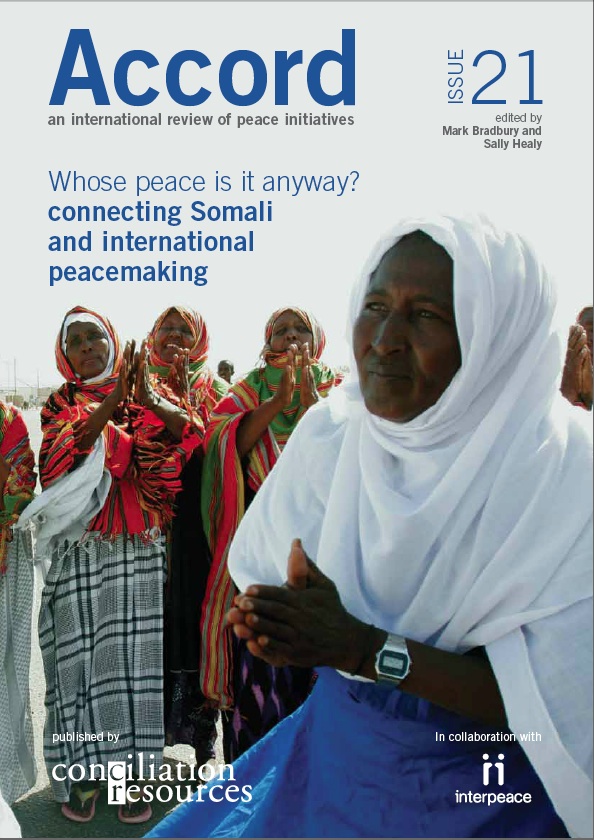What is the overarching strategy of the African Union (AU) for supporting peace in Somalia?
Our strategy originates from the need to implement our mandate from the AU Peace and Security Council (PSC), which is backed up by UN Security Council (UNSC) resolutions to support peace in Somalia.
The legitimacy of the Transitional Federal Government (TFG) is challenged by many Somalis. How can the AU and the AU Mission in Somalia (AMISOM) help to strengthen links between the TFG and the Somali people?
The link has to be the Djibouti process. And this is why AMISOM continues to stress the importance of the Djibouti process to all Somalis. We have also placed emphasis on encouraging the TFG to bring on board those outside the Djibouti process. Recently, AMISOM played a critical role in encouraging the Somali Islamist group Ahlu Sunna Wal Jama’a to accept the TFG’s legitimacy within the context of the Djibouti process. And it continues to encourage the various stakeholders to support the government in its reconciliation efforts.
A primary objective of AMISOM is to ‘work with all stakeholders to support dialogue and reconciliation in Somalia’. How is it trying to achieve this?
AMISOM is in constant dialogue with all stakeholders at all levels of Somali society. We do this through political outreach both in Mogadishu and in Nairobi where there is a large Somali community.
AMISOM is not currently mandated to protect civilians. How should it be trying to uphold the human security of ordinary Somalis?
As a subsidiary organ of the AU Commission (AUC), AMISOM is bound by the AU Constitutive Act of July 2000, which sets among its objectives the protection of African civilians, including Somalis. AMISOM’s ethos is also consistent with the AU’s principle of ‘non-indifference’. When able to, our forces have continued to provide human security for ordinary Somalis.
AMISOM is still a long way short of full capacity. What does this say about the commitment of AU member states and of the AU’s international partners?
There can be no question of the commitment of AU member states in seeing a lasting peace in Somalia. The PSC communiqué in July 2009 is a strong expression of member states’ will to contribute to the force generation needed for AMISOM. As of today, countries such as Djibouti, Malawi and Nigeria to name a few have pledged to contribute forces. With regard to the international community, the pledges made at the 2009 Brussels Conference are a testament to their commitment to both AMISOM and Somalia.
How have regional political dynamics impacted on the AU’s activities in Somalia, in particular the role of Eritrea and Ethiopia, and the AU’s relationship with International Governmental Authority on Development?
There is a general acceptance that the issue of Somalia must be solved politically. Regional organisations such as IGAD continue to complement the AU’s lead role in Somalia. Both organisations are also actively and constructively engaging frontline states to ensure they both put the interest of Somalia first.
Given its capacity constraints, how can AMISOM respond to the threat posed by Al Shabaab?
AMISOM is currently working with all stakeholders in Somalia. Our aim is to use these stakeholders to reach out to insurgents to embrace dialogue and reconciliation. AMISOM is also using its wide support among the Somali population to draw support from insurgents to join the peace process. We are currently denying insurgents a support base by working with local communities and focusing on building a strong national force.
Increasing attention is being paid to local Somali peacemaking efforts. Is this something that the AU is interested in supporting? How?
The AU will continue to welcome and support any local initiative that is aimed at bringing a lasting peace to Somalia. It is within this context too that AMISOM regularly meets local leaders to discuss peace initiatives.
How will the AU’s peace and security relationship with the UN develop in the future, in Somalia and more broadly?
The current crisis in Somalia has proven that both the AU and the UN can work in partnership successfully to address effectively conflicts in Africa. The AMISOM model in Somalia has the capacity to strengthen the working relationship with the UN in other ongoing regional conflicts.
What do AMISOM’s experiences to date say about the development of the AU’s peace and security capability in the longer term?
First, it is a strong statement that there should be no doubt about the AU’s commitment to peace and security in Africa. That said, Somalia remains a challenge and AMISOM is able and capable of delivering a lasting peace to Somalia. AMISOM’s Somalia model has also proven to ordinary Africans that future conflicts will be primarily resolved within an African context.
How should the AU work with Somalis and with the international community to build peace in Somalia in the future?
AMISOM and the international community must continue to build upon the Djibouti process, by encouraging dialogue and reconciliation in Somalia as a prerequisite to a lasting peace.
Interview conducted by Alexander Ramsbotham.

